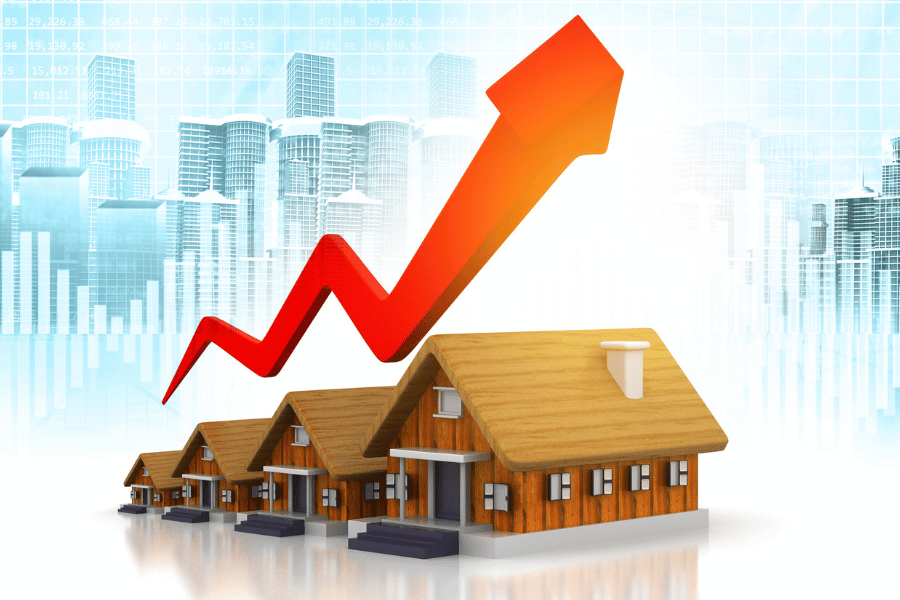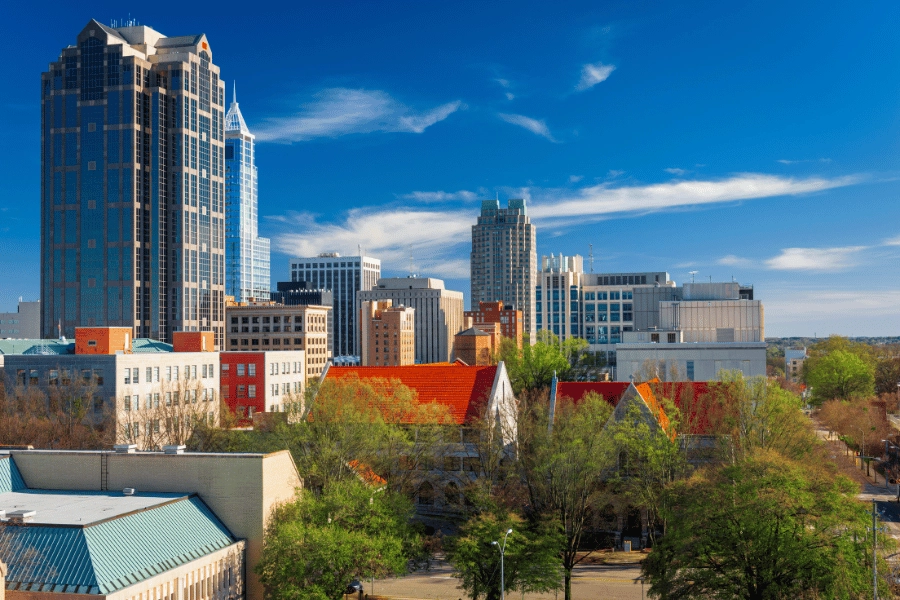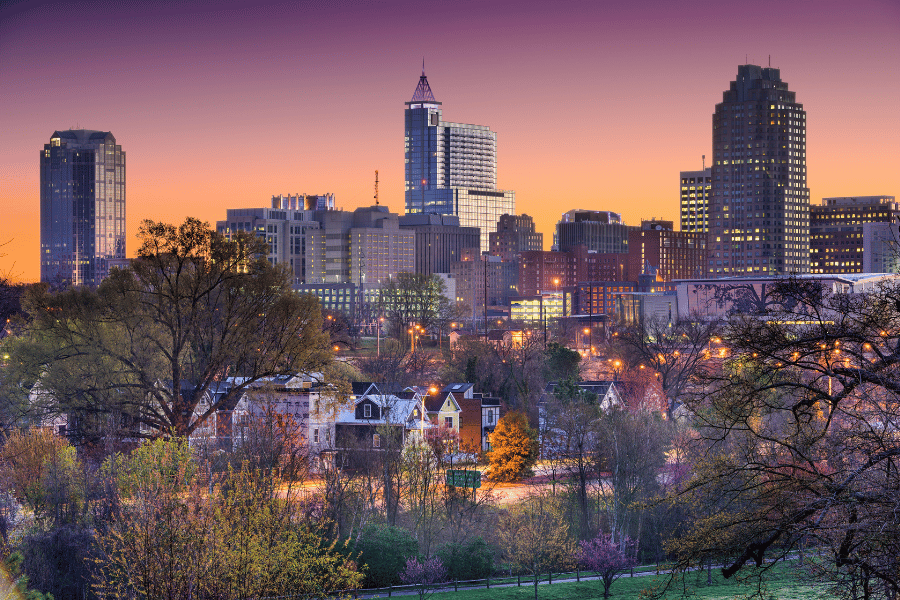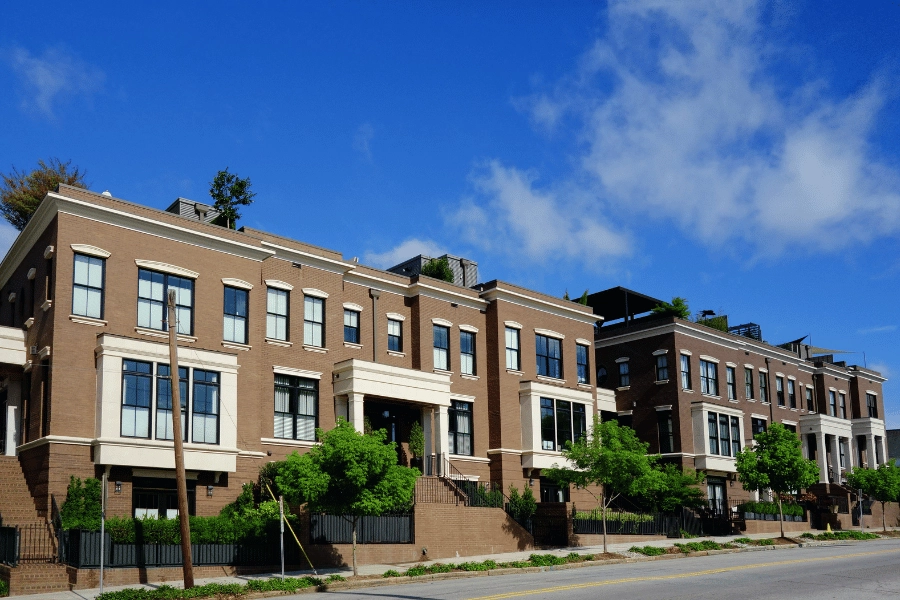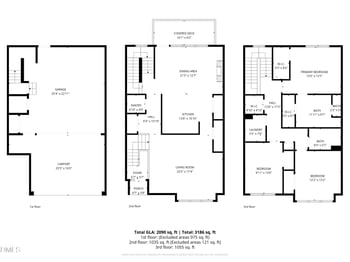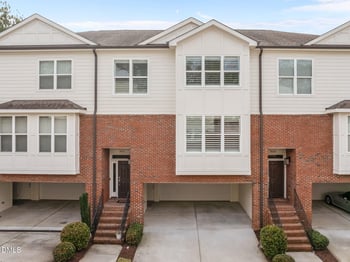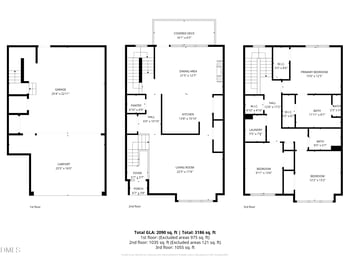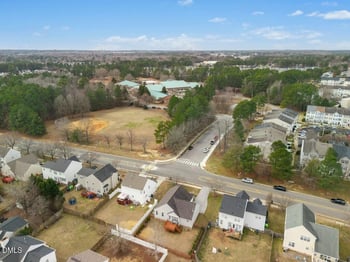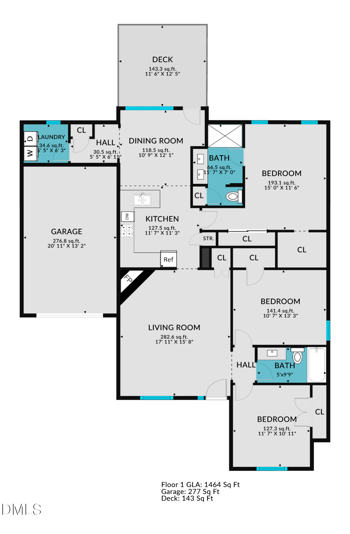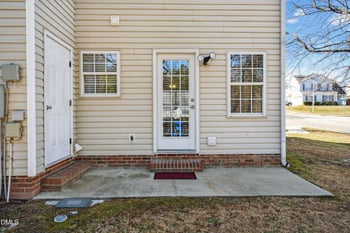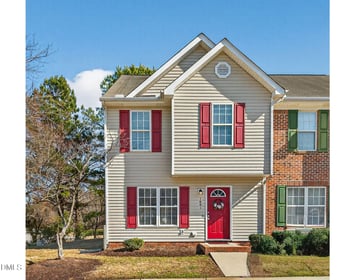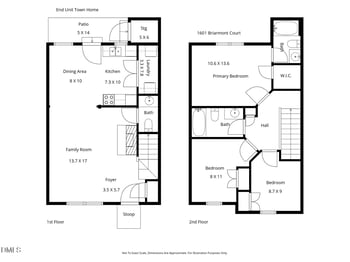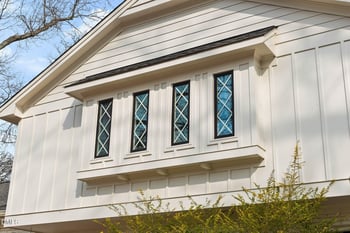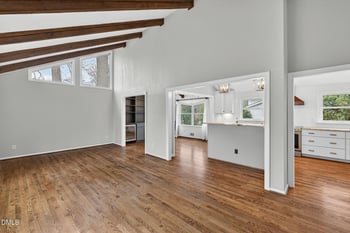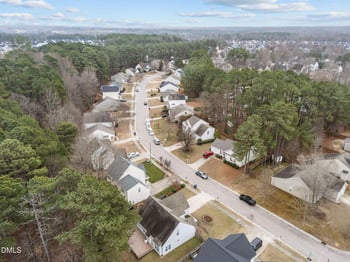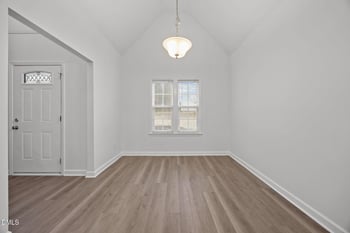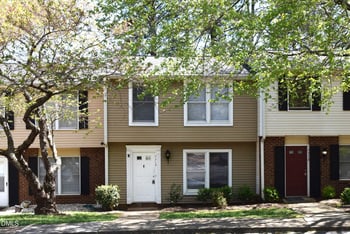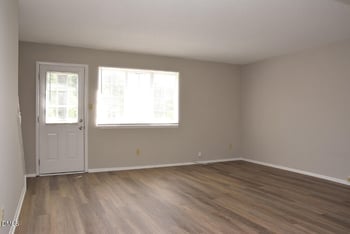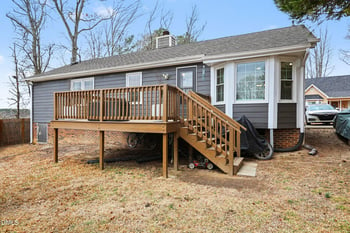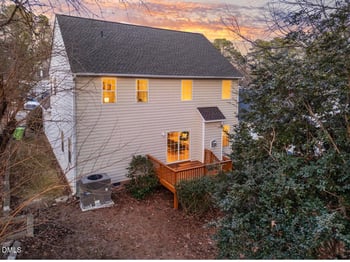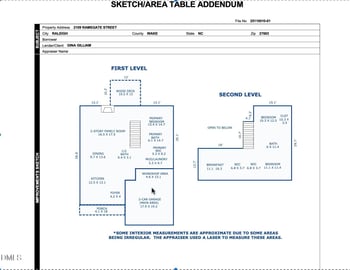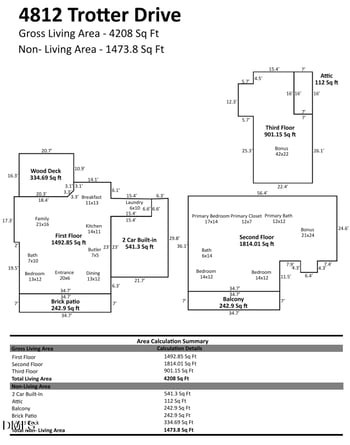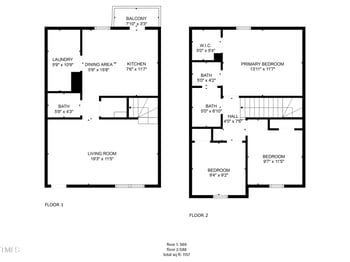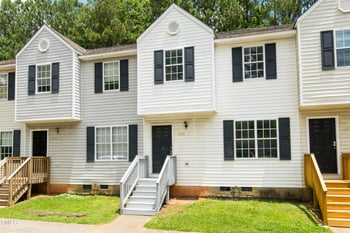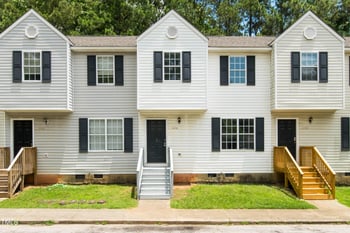How Raleigh's Economy Affects Real Estate
Are you wondering how Raleigh's economy is affecting real estate? Here is all you should know about Raleigh's economy and its affect on real estate.
Raleigh, North Carolina, is the city home to a large number of technology companies, making it a hub for innovation and entrepreneurship. With this growth in technology comes the need for more housing, which has led to an increase in demand for homes in the capital.
You will undoubtedly love to call this place your home due to its thriving job market, endless job opportunities, and excellent education. No matter what sector you choose, there will be something for everyone.
The economy of Raleigh is rapidly advancing, especially in the field of technology. This growth is significantly impacting every industry, including real estate. Incorporating innovative technologies in real estate is revolutionizing how this industry operates and driving its success.
Ranked as the third-hottest job market in the county, Raleigh has been experiencing massive job growth as more and more companies decide to relocate to the area.
If you are looking to live in this thriving city, check out available homes for sale in the area to find the perfect home for you.
Here is all you should know about how Raleigh's economy is affecting real estate.
1. Raleigh's Economy
Raleigh is one of the most sought-after cities in the US, boasting a burgeoning economy and an exceptionally educated workforce. Data reveals that Raleigh's technology job market surged by 62.3% to 28,853 in the last year. Projections indicate that future job growth over the next decade is anticipated to be 44%, surpassing the national average.
Raleigh boasts an unemployment rate of 3.1%, which is notably lower than the national average. This city undeniably possesses a thriving economy and is home to numerous companies that significantly contribute to its economic prosperity. The vibrant culture is teeming with attractions, making this city truly exceptional.

Here are some facts about Raleigh's economy:
- Sales tax rate of 7.25%
- Income tax rate of 4.75%
- Average income for a resident is $42,976 a year
- Median household income of resident is $76,631
- Research Triangle Park is one of the leading centers for high-technology research and development in the country
Raleigh is ranked as one of the top 10 cities for economic development in the US. The city has experienced solid job and wage growth, and it remains one of the most affordable housing markets compared to other surrounding cities. Raleigh's future outlook remains positive, and the area is expected to increase in population as well.
Industries
Five key industries represent 75% of the area's economy based on the Economic Development and Raleigh Chamber. Below are the top industries.
- Professional and Business Services - 19.1% with 127,319 employees
- Accounting and Law Firms to Banks and Marketing Agencies
- Trade, Transportation, and Utilities - 17.3% with 115,884 employees
- Walmart, Food Lion, and Target are the largest retailers in the region
- Education and Health Services - 16.8% with 112,491 employees
- Duke University and Duke Health Systems, as well as the Wake County Public School System and UNC, take a share of this sector
- Government - 13% with 89,691 employees
- Federal, state, and local employees across Wake County
- Leisure and Hospitality - 9.1% with 60,770 employees
- Luihn Food Systems, Concord Hospitality Enterprises, and PNC Arena are the largest employers
Small businesses are the backbone of Raleigh, providing support for small and minority-owned businesses in the area. For more information, take a look at the small business resource guide to get assistance.
2. Raleigh's Real Estate
As of June 2024, Raleigh home prices were up 4.8% compared to last year. On average, homes in this area sell after about 13 days on the market, which is faster than last year, which was 53 days. According to the Triangle MLS, below are some stats on the current housing market as of June.
| Median Sales Price | $429,750 (4.8% increase) |
| Closed Sales | 3,150 (-16.5% decrease) |
| Active Inventory | 6,836 (3.7% increase) |
| Home Affordability | 68 |
The current housing market in Raleigh heavily favors sellers, with an imbalance of more buyers seeking homes than there are homes available. Expect higher prices and quick sales for the homes on the market.
As of March 2024, home prices in Raleigh have surged by 5.1% compared to the previous year, and homes typically sell within 16 days of being listed. Quick and decisive action is crucial if you aim to purchase a home in one of Raleigh's prime neighborhoods.

Raleigh's position as a technology, education, and research hub is poised to drive substantial economic and population growth through 2024, leading to high demand for housing. However, the total number of available homes in March 2024 was 22% lower compared to the previous year.
3. Technology
Research Triangle Park is the largest research and science park in North America, attracting large corporations to Raleigh from around the world. This has led to a significant increase in job opportunities over the last five years, and the growth shows no signs of slowing down.
The influx of big technology companies has raised questions about their impact on the market, leading to a highly competitive real estate market. Here are some things you should know to navigate this tight real estate market.
- You should know the neighborhood and what type of location you like. Keeping up with the prices and demands of a certain area will help you when you are ready to buy or sell.
- Knowing what you can afford will help you find a house that fits your budget and save money to buy it.
- Get preapproved for a mortgage. The market is fast and competitive, so having this pre-approved mortgage will show how serious you are and offer you the financial resources you need.
- Hire a real estate agent. You can do all the research you want, but having a real estate agent will help you save time and money.

Navigating the real estate world in Raleigh can be challenging, especially given the rapid growth of the tech scene. Understanding the housing market, economic trends, and changing landscape is crucial.
Working with a reliable agent can help you stay updated and make informed decisions without wasting time or money. In 2024, various technologies will revolutionize how homes are bought, sold, and managed.
Failing to adapt to these changes could mean falling behind the competition in the competitive real estate industry. Staying informed about new trends is essential for the success of your business and your financial well-being.
4. Population
The Raleigh area of North Carolina is experiencing a population boom, with a growth rate more than double that of the entire state. In the past few years alone, the population of Raleigh has increased by 4.65% since 2020.
Raleigh is the second-largest city in North Carolina, with a population of nearly 1,629,000, according to MacroTrends, which is also a 2.39% increase from last year. The population is projected to grow by 125,000 people in the next 15 years.
- 1,629,000 Raleigh residents
- Grown 25.6%
- Growth rate of 1.17% per year
- Predicted to remain the fastest-growing metro area through 2025
One of the main reasons why people are moving to Raleigh is the economic opportunities and high quality of life. The Raleigh area has seen a significant increase in households and businesses, with nearly 40,000 developments over the past couple of years.
Surrounding cities such as Fuquay Varina, Cary, and Apex have also experienced a significant increase in population due to migration to the area.
The area's population growth has had both positive and negative impacts. While it has been beneficial for the region, it has also resulted in a low inventory of homes and higher prices.
As the housing market in Raleigh is thriving, there are fewer available homes for people due to the rise in population. If you are searching for a home in the Triangle area, you need to be competitive, find a trustworthy agent, or consider looking in the surrounding neighborhoods.
5. Supply and Demand
Between the excellent schools, booming business sectors, and various affordable housing options, demand remains strong in Raleigh. There are many people actively looking to relocate to this area due to its opportunities.
However, the housing market is always changing, especially in the capital. Market trends have a huge impact on the housing market, and Raleigh's economy does impact its real estate here.

Supply has fluctuated, but the overall monthly inventory is quite far below what is considered an ideal balanced market. Six months is the best, and Raleigh is sitting at around two and a half. As of June 2024, as stated above, the active inventory is about 6,836.
The demand for housing in this area is increasing due to more people relocating. Although many new constructions are happening in Raleigh, prices have skyrocketed, and the competition is higher than ever. However, it is projected to improve over the next couple of years.
Methodology
We used information and data from several different sources as well as our own data to create this guide about how Raleigh's economy is affecting real estate. Most of the data was sourced from the following sources:
- Wake County Economic Development
- U.S. Bureau of Labor Statistics
- United States Census Bureau
- Economic Development and Raleigh Chamber
Above are a few sources that we used to gather most of our information about understanding thow Raleigh's economy is affecting real estate.
FAQS
Are housing prices going down in Raleigh?
In June 2024, Raleigh home prices increased by 4.8% compared to the previous year. On average, homes in this area sell after about 13 days on the market, which is faster than the previous year, when it took 53 days. It's important to note that the current market favors sellers.
How does the economy affect real estate?
The overall health of the economy affects the value of real estate for many reasons. It is generally measured by economic indicators such as the GDP, employment data, manufacturing activity, and prices of goods.
Is Raleigh real estate a good investment?
With a growth rate of 62 people per day, Raleigh's population density is comparable to that of Atlanta and Austin. With a high percentage of individuals moving to the area, Raleigh also offers a strong housing and rental market, which can deliver a high return on investment.
What is the current housing issue in Raleigh?
Raleigh's population is rapidly increasing, leading to a significant housing shortage that is driving up both prices and rents. Unfortunately, this trend is not expected to slow down; instead, it is predicted to continue increasing.

How Raleigh's Economy Affects Real Estate - The Bottom Line
With new jobs and employment opportunities on the rise, the population is increasing, leading to a surge in the demand for housing. The real estate market is a cornerstone of the global economy and is expected to reach approximately $729.4 billion by 2028, according to a Statista report.
After initial reluctance, the real estate industry is now actively embracing cutting-edge technology trends. Raleigh is solidifying its position as one of the fastest-growing and highly desirable tech hubs in America, with North Carolina experiencing its own tech gold rush.
This growth has led to the integration of newer technologies to support the area's companies and attract new residents to these opportunities. Current residents of Raleigh should be aware of this growth coming to their area and prices changing because of the booming economy.
If you are considering moving or selling, contact us or visit our website. Our team at Raleigh Realty is here to help you with any home buying or selling needs.
